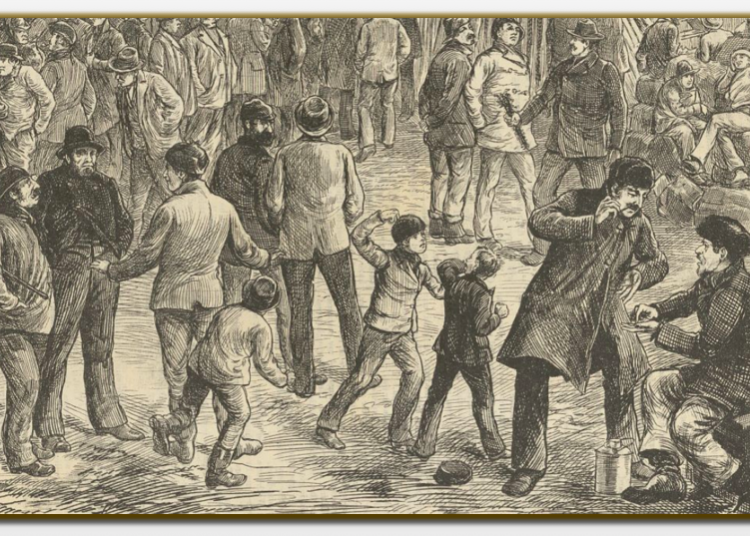Late Friday afternoon on February 14, Fredericton City Council voted to use strikebreakers (“replacement workers”) during a labour dispute. Happy Valentines Day!
The Council vote occurred less than an hour after their lockout notice for City outside workers went into effect. The City workers, members of CUPE 508, had issued a strike notice after many fruitless attempts to negotiate a new collective agreement. Their agreement expired in December 2018.
The Supreme Court of Canada confirmed in 2015 that strikes are protected under the Canadian Charter of Rights and Freedoms. In the Canadian labour relations system, a union can issue a legal strike notice after collective bargaining has reached an impasse and the union members have voted to strike.
The ability of workers to withhold their labour is an essential element in the highly complex process of collective bargaining. Using strikebreakers or replacement workers, commonly called “scabs,” undermines and damages that process. For this reason, it is strongly discouraged by the United Nations International Labour Organization.
AFIMAC, the professional security and strikebreaking firm contracted by the City of Fredericton was also used by the University of New Brunswick in Fredericton during the 2014 faculty strike. Many comments currently on Facebook from AUNBT members on the picket recall this as an attempt by the university administration to intimidate the striking faculty.
In Quebec and British Columbia, using strikebreakers during a labour dispute is illegal.
In Quebec history, the Lachine Canal Labourers strike of 1843 (illustration above) is considered by some historians as “the pioneering clash between labour and capital.” A thousand Irish migrant labourers working on the Lachine Canal near Montreal struck for higher wages, and their many clashes with strikebreakers and police resulted in bloodshed.
The 1977 Quebec law banning strikebreakers was introduced by the new Parti Québécois government after a long period of labour unrest in the province (1). Most notable was the strike by local 510 of the United Auto Workers at United Aircraft near Montreal that lasted for 20 months into 1975 and was marked by violent confrontations.
When lawyer Pierre-Marc Johnson, Minister of Labour at the time, introduced the law in the Quebec National Assembly, he stated that “Where there are scabs there is violence.”
The section of the Quebec Labour code relevant to the Fredericton dispute is:
109.1. For the duration of a strike declared in accordance with this Code or a lock-out, every employer is prohibited from:
(a) utilizing the services of a person to discharge the duties of an employee who is a member of the bargaining unit then on strike or locked out when such person was hired between the day the negotiation stage begins and the end of the strike or lock-out
The law in British Columbia banning the use of strikebreakers was introduced in 1993 by the new NDP government, also after a period of labour unrest in the province under a right-wing and anti-labour Social Credit government (1).
The BC anti-scab law remains in place today. A March 2018 submission to the BC government by the BC Federation of Labour (BCFL) stated that “British Columbia should be proud of its continued ban on replacement workers.” The BCFL recommended no change to the anti-scab section of the BC Labour Code because “any amendment would run counter to the good faith spirit of labour relations and would threaten British Columbia’s economic stability and labour peace.”
The section of the BC Labour Code relevant to the Fredericton dispute is:
68 (1) During a lockout or strike authorized by this Code an employer must not use the services of a person, whether paid or not, to perform:
(e) the work of an employee in the bargaining unit that is on strike or locked out
Ontario also had a ban on strikebreakers introduced by the NDP government in 1993 that was repealed by the subsequent Conservative government in 1995.
Ten attempts have been made to introduce a national anti-scab law in Canada, all through private members’ bills by the Bloc Québécois. Only one (C-257) passed second reading. It had unanimous support from the BQ and NDP caucuses but was ultimately defeated by the Conservative government at third reading in 2007 (1).
Quebec and British Columbia remain the only jurisdictions in North America with anti-scab legislation. Two countries have laws banning the use of strikebreakers, Japan and South Korea. In Europe, where collective bargaining is strongly protected, strikebreakers are rarely used.
Labour legislation in New Brunswick requires that parties “negotiate in good faith” and “make every reasonable effort” to reach settlements. It is not clear how the City’s decision to hire a professional strikebreaking firm meets this requirement.
Susan O’Donnell, a member of the NB Media Co-op editorial board, retired in 2017 from the National Research Council in Fredericton as a Senior Research Officer. From 2014 to 2017, Susan was President of the national group representing 1,500+ National Research Council researchers and science professionals in 20+ locations across Canada, with the federal union PIPSC, the Professional Institute of the Public Service of Canada.
(1) Information from an excellent and readable article, A federal anti-scab law for Canada? The debate over Bill C-257, written by two professors from Brock University in Ontario, Larry Savage and Jonah Butovsky.



![Student accepted into UNB grad program stranded in Gaza awaiting Canadian study permit [video]](https://nbmediacoop.org/wp-content/uploads/2025/11/BiometricsNov72025-1-350x250.jpg)


![Solutions to housing crisis ‘hidden in plain sight,’ says planning prof turned filmmaker [video]](https://nbmediacoop.org/wp-content/uploads/2026/01/BeyondMarketHousingJan52025-120x86.jpg)


![Poster exhibit remembers the two Japanese cities devastated by nuclear weapons [video]](https://nbmediacoop.org/wp-content/uploads/2025/10/image0-3-120x86.jpeg)
